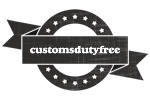Liechtenstein is a small, doubly landlocked microstate in Central Europe between Austria and Switzerland. Liechtenstein is situated in the Upper Rhine valley of the European Alps. The government system is a constitutional monarchy; the chief of state is the prince, and the head of government is the prime minister. Liechtenstein has a prosperous, highly industrialized, free-enterprise economyThe management of money, currency and trade of a nation. The... in which there is vibrant private activity, and the role of the state in economic activity has been kept low. Liechtenstein is a member of the European Free TradeThe buying and selling or exchange of goods and services. Th... Association (EFTA).
28% of the Liechtenstein economyThe management of money, currency and trade of a nation. The... is in the area of general services. This sector includes tourism, real estateAlso called Realty. Property consisting of land with permane..., information technologyAlso known as IT. The study and use of computers and communi..., cleaning and repair services, and retail to name just a few. Public administration constitutes a special branch within this sector. The largest private employers are services for companies, real estateAlso called Realty. Property consisting of land with permane... companies, and information technologyAlso known as IT. The study and use of computers and communi... companies. They provide about 8% of Liechtenstein’s jobs. 8% of Liechtenstein’s workforce is employed in retail and repairs. The State, including the National Administration and the municipalities, employs about 14% of the workforce through jobs primarily in education, healthcare, social services and public administration.
Besides its efficient industry, there also is a strong services sector. Four out of 10 employees work in the services sector, a relatively high proportion of whom are foreigners, including those who commute across the border from the neighboring states of Switzerland, Austria and Germany. Industrial exports more than doubled in 20 years from $1.21 billion (SFr. 2.2 billion) in 1988 to $2.9 billion (SFr. 4.6 billion) in 2008. Some 15.7% of Liechtenstein goods are exported to Switzerland, 62.6% to the EU, and 21.1% to the rest of the world. Liechtenstein imports more than 85% of its energy requirements from the Swiss, while it produces only 15% of its energy requirements.
Important Details
- Country ISO3 : LIE
- Country Code : 438
- Income Group : High Income
- Lending Category : P2PPeer-to-peer is a model for computer connectivity and file-
- Region : Europe and Central Asia
- Currency Unit: Swiss franc (CHF)
- WTO Member : Yes
- TradeThe buying and selling or exchange of goods and services. Th... organisations : WTO, EU
- world rank : NA
- Regional Ranking : Not Ranked in Europe

